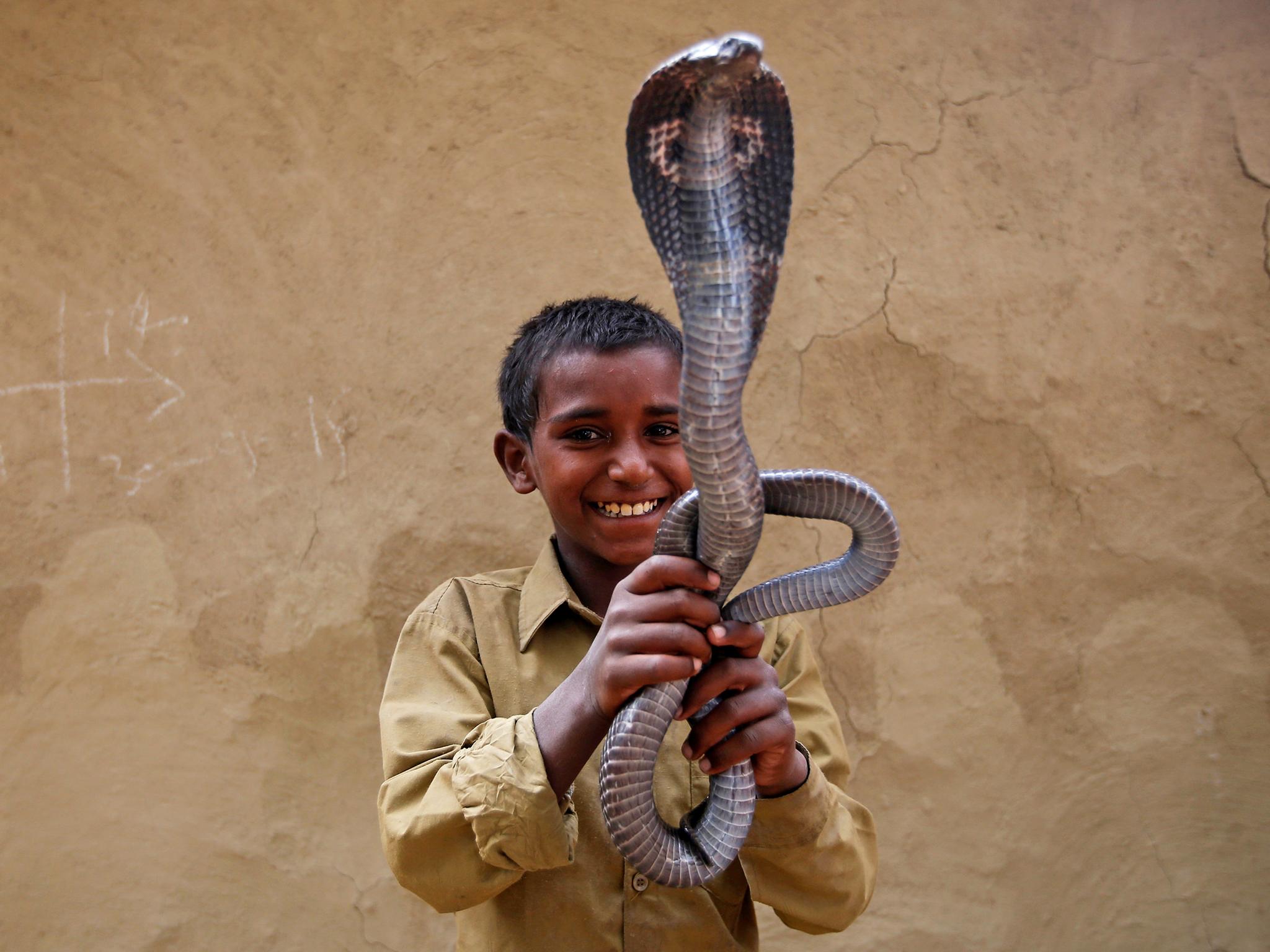Charming snakes in Uttar Pradesh
Snake charmers were once a regular fixture at Indian bazaars and festivals – mesmerising crowds of onlookers with their ability to control some of the world’s most venomous creatures

Buti Nath flips the lid of a basket and a cobra snake slowly emerges. The deadly reptile begins to sway as Buti plays his gourd flute. He is a member of an ancient tribe of snake charmers known as Saperas, who over the generations have thrived on catching venomous snakes and making them dance to their music.
“More than seven generations of our families have been doing this and so are we,” Buti Nath, 65, says in his dusty village of Jogi Dera in Uttar Pradesh, India's most populous state. “We are called upon whenever there are dangerous animals coming into your houses or in your fields – we go and catch them with courage.”
Snakes are revered by Hindus in India and snake charmers are considered the followers of Lord Shiva, the blue-skinned Hindu god who is usually portrayed wearing a king cobra around his neck.
Snake charmers were once a regular fixture at Indian bazaars and festivals, mesmerising crowds of onlookers with their ability to control some of the world's most venomous creatures. They would often be the main source of medicines if someone suffered from a snake bite.
The snake charmers of Jogi Dera say their centuries-old tradition is slowly dying out as authorities seek to enforce wildlife protection laws, and after an outright ban on the practice in 1991.
Modernity is also doing its part to elbow out tradition and these days, saperas don't earn much as there are plenty of other entertainment options available.
“There is no place in civilised society for people to go around catching snakes and taking them and doing some kind of an entertainment show with snakes,” said 30-year-old Mangal Nath, cradling his infant son in his arms.
In Jogi Dera, a snake charmer earns about 200 rupees (£2.40) a day, not enough to support a family. Young villagers who had dreamed of a life of snake charming are leaving to find work on construction sites or as rickshaw drivers.
Kuldip Nath, a 14-year-old snake charmer recalled how he joined his father in searching for snakes, and said he regrets not going to school. “Sometimes, I also feel that I should study, get a proper job or get into some business and work, so that I can take care of my responsibilities for my family and children,” he said.
Reuters
Join our commenting forum
Join thought-provoking conversations, follow other Independent readers and see their replies
Comments
Bookmark popover
Removed from bookmarks